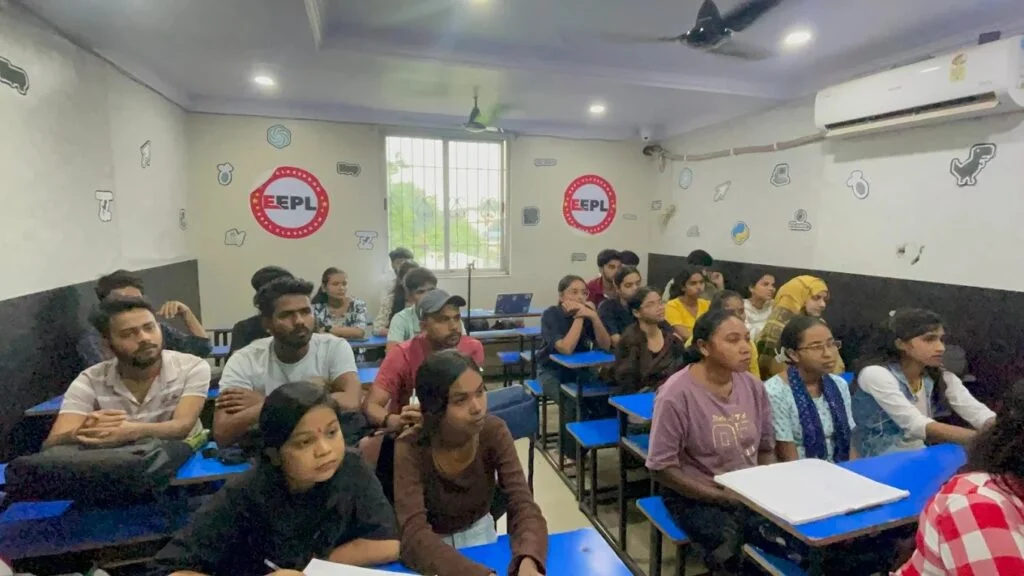Class 12 Maths can feel like a big challenge, but with the right approach, you can conquer it. Whether you’re feeling stressed or confident, these tips will help you approach your Maths exam with a clear mind and smart strategy. Let’s dive in!
1. Understand the Syllabus
Before you start studying, take time to look at your Maths syllabus. The syllabus will guide you on which chapters to focus on. It helps you understand the topics covered in the exam and how much weight each chapter carries.
Focus on the important chapters first. If you’re unsure which chapters to prioritize, check past year papers or ask your teacher for advice.
2. Know the Exam Pattern
It’s crucial to understand the exam pattern. Class 12 Maths exams generally include:
- Objective questions (multiple-choice questions).
- Short-answer questions (2 to 3 marks).
- Long-answer questions (5 or 6 marks).
Each section will test different skills. Objective questions test quick recall and understanding, while long-answer questions test your ability to solve complex problems step-by-step.
3. Start Early and Plan Your Time
Don’t wait until the last minute to start studying. Start early and give yourself enough time to cover the entire syllabus. Create a timetable that includes:
- Study hours for each topic.
- Revision sessions closer to the exam.
- Breaks to relax and refresh your mind.
Spreading your study time across weeks or months gives you a better chance to review everything before the exam.
4. Focus on Important Topics
Class 12 Maths has many chapters, but some topics are more important for the exam. Some key chapters you should focus on include:
- Calculus: Differentiation and integration are crucial topics for both short and long-answer questions.
- Linear Programming: This chapter often comes up in exams.
- Vectors and 3D Geometry: These chapters carry significant weight in the exam.
- Probability: Probability questions are common, so make sure you’re comfortable with the formulas and concepts.
Practice problems from these topics regularly to build confidence.
5. Practice, Practice, Practice
The best way to prepare for the Maths exam is by practicing as many problems as you can. Here’s how you can practice:
- Solve Previous Year Papers: This will help you understand the types of questions that appear in the exam.
- Sample Papers: Try solving sample papers available online or from your textbook.
- Important Questions: Focus on solving the most commonly asked questions.
The more problems you solve, the more familiar you will become with the question formats and the techniques you need to use.

6. Understand the Concepts
Math is not about memorizing formulas alone. You need to understand the concepts behind the formulas. For example:
- In Calculus, understand how differentiation works and why it’s used.
- In Algebra, understand the logic behind solving equations and inequalities.
Once you understand the theory behind the formulas, it becomes easier to apply them to different problems. Don’t hesitate to ask your teacher or classmates if you don’t understand something.
7. Work on Speed and Accuracy
In the exam, you’ll be racing against time, so it’s important to work on both speed and accuracy.
- Speed: Practice solving problems quickly. Set a timer while solving practice questions to improve your pace.
- Accuracy: Focus on getting the answer correct. If you rush, you might make careless mistakes.
It’s better to solve fewer questions correctly than to try and answer everything but make mistakes.
8. Master the Formulae
Maths relies heavily on formulas. Memorize all the important formulas and practice applying them in different problems. Some common formulae you should know include:
- Formulas for Differentiation and Integration in Calculus.
- Vector and Matrix operations.
- Trigonometric identities and their applications.
You can create a formula sheet to revise quickly before the exam. Review the sheet regularly.
9. Use Diagrams and Graphs
For topics like 3D Geometry, Vectors, and Probability, using diagrams and graphs can make the problem easier to understand. Always draw clear diagrams for questions related to geometry or vectors.
Accurate diagrams can sometimes help you avoid mistakes and answer questions more effectively.
10. Time Management During the Exam
When you sit for the exam, manage your time wisely. Here’s how:
- Read the Entire Paper First: Quickly read through all the questions before starting. This will help you understand the paper and plan which questions to attempt first.
- Start with Easy Questions: Begin with questions that you find easiest. This builds confidence and helps you manage time better.
- Don’t Spend Too Much Time on One Question: If you’re stuck on a question, move on to the next one. Come back to the difficult questions later if you have time.
- Leave Time for Revision: Always leave the last 10–15 minutes for reviewing your answers. This helps you catch mistakes.
11. Stay Calm and Positive
On the day of the exam, stay calm and positive. Anxiety can make it hard to think clearly. Remember, you’ve prepared well, and you can do it!
- Relax before the exam by breathing deeply or doing something that helps you stay calm.
- Avoid last-minute cramming, as it can increase stress.
12. Learn from Your Mistakes
After the exam, take time to reflect on your performance. Review which questions you found difficult and which topics need more practice. This will help you improve for the next exam or semester.
Conclusion
Class 12 Maths can be challenging, but with the right approach, you can handle it successfully. Start early, practice regularly, and stay confident. Remember to focus on important topics, work on speed and accuracy, and manage your time well during the exam.
By following these tips, you’ll not only improve your Maths skills but also boost your chances of scoring well in the exam. Good luck!
Read Our Latest Blog
How To Balance School Studies & Competitive Exam Preparation
Phone Number: +91-7488456170
Email ID: abhishek@eepl.me
Our Platforms:
Digilearn Cloud
EEPL Test
Live Emancipation
Follow Us on Social Media:
Instagram – EEPL Classroom
Facebook – EEPL Classroom
Stay connected and keep learning with EEPL Classroom!











